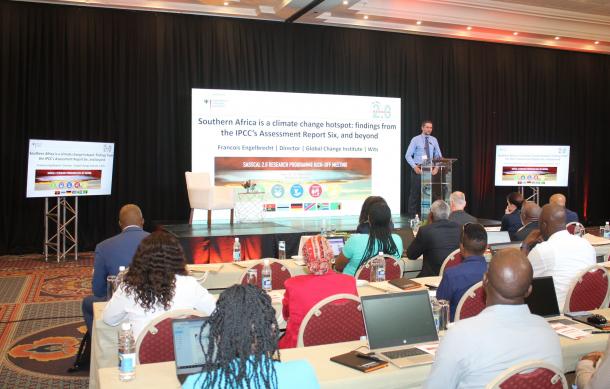
Temperatures in Southern Africa are rising quicker than the global average, with heat stress expected to become an increasingly greater threat.
These are some of the concerns raised at the Southern African Science Centre for Climate Change and Adaptive Land Management workshop, which aimed at reviewing and improving scientific research on adaptation and mitigation of the impact of climate change in Southern Africa.
With southern African countries about to reach the two-degree Celsius threshold of global warming, serious consequences for humanity, the landscape, and resources are expected to worsen.
SASSCAL's Executive Director, Dr. Jane Olwoch, says scientific research indicates that the prolonged drought experienced in southern Africa, including Namibia, could worsen for about five to ten years and impact water resources.
She further stressed the need to strengthen emergency response and resources in view of devastating weather patterns impacted by climate change to rescue victims and avoid loss of life.
The SASSCAL 2.0 program thus calls for SADC Grand Challenges in integrated research priority areas of food security, water security, and sustainable forests and woodlands.
Drought in recent years has brought about famine and displaced many, while heat waves have also killed many.
The University of Witwatersrand's Professor Francois Engelbrecht stressed the importance of improving scientific research for effective policies on climate mitigation and adaptation.
He further noted with concern the rapid pace of global warming that could lead to the collapse of the maize crop and cattle industry in Southern Africa.
Engelbrecht, however, says the 2.0 degree Celsius threshold can be avoided through collaborative efforts as well as creating awareness.
Dr. Olwoch applauded Namibia for being at the forefront of mitigating the effects of climate change through policies and partnerships despite a lack of research funding.





